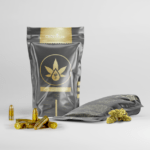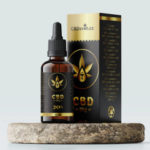When people talk about cannabinoids, they are deliberately talking about those that do not cause any psychoactive states. In short, most people try to avoid THC like the devil. It is because of this cannabinoid that cannabis was, and still is, considered illegal in many countries drog. But THC is not just a mind-altering substance, it also has proven health benefits that have been confirmed by numerous studies. We do not endorse the use of THC, but it is good to know its dark side as well as its light side;
What is THC?
THC, also called tetrahydrocannabinol, is a compound in cannabis that is psychoactive. However, the chemical formula of THC, C₂₁H₃₀O₂, is very similar to its counterpart, CBD , which actually combats the effects of THC;
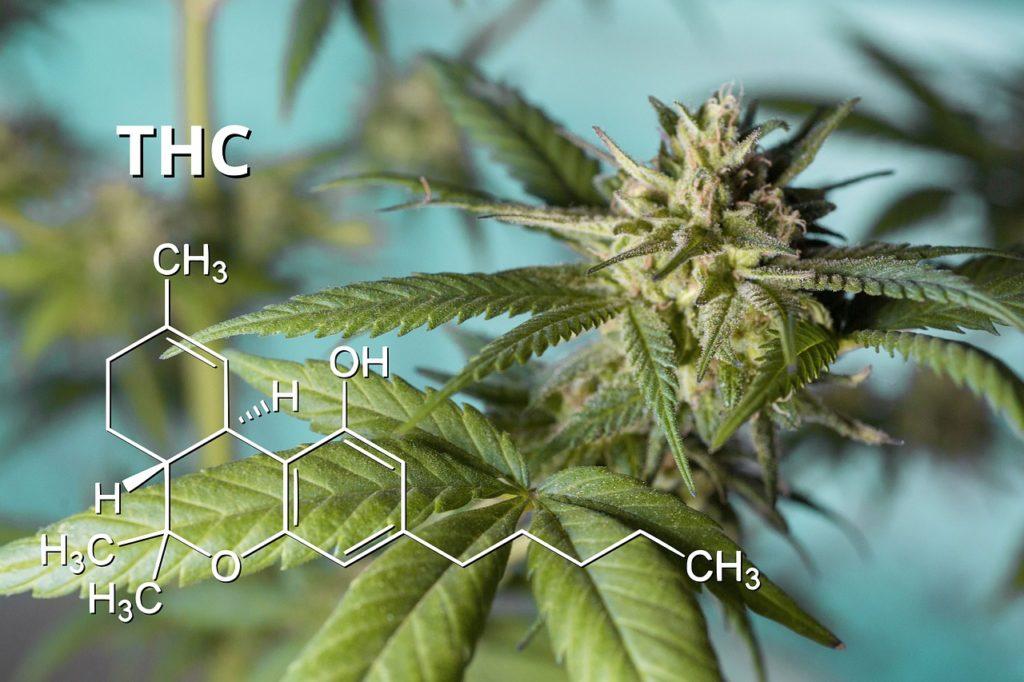
Yet THC mimics the natural chemical anandamide (which is produced in the brain) in structure and alters the function of communication. Thus, instead of the brain’s normal communication through neurons, the THC compound binds to neurons and alters this process;
According to the National Institute on Abuse drugs in the U.S. (NIDA) THC affects things like thinking, memory, pleasure, movement, concentration, coordination, and sensory and temporal perception. For these reasons, it can be dangerous to do things like operate heavy machinery or drive under the influence of this drug;
Although the disadvantages of THC are intensively highlighted and cannabis plants are grown with as little THC as possible, the health benefits are rarely discussed. In fact, THC boasts several health benefits that have been shown to help treat, for example, depression, PTSD, epilepsy and even eating disorders;
Use of THC
THC boasts a variety of uses, both medicinal and recreational. Of the dozens of different ways THC can be used, it can be used in syrups, edibles, oils used through tinctures, drops, in medicines and topicals, including creams and balms used for anti-inflammatory purposes;
THC and cannabis can also be used on animals, such as dogs, for pain relief and calming anxiety.
There is even a drug containing synthetic THC, which is the only currently FDA-approved drug with THC, called Marinol.
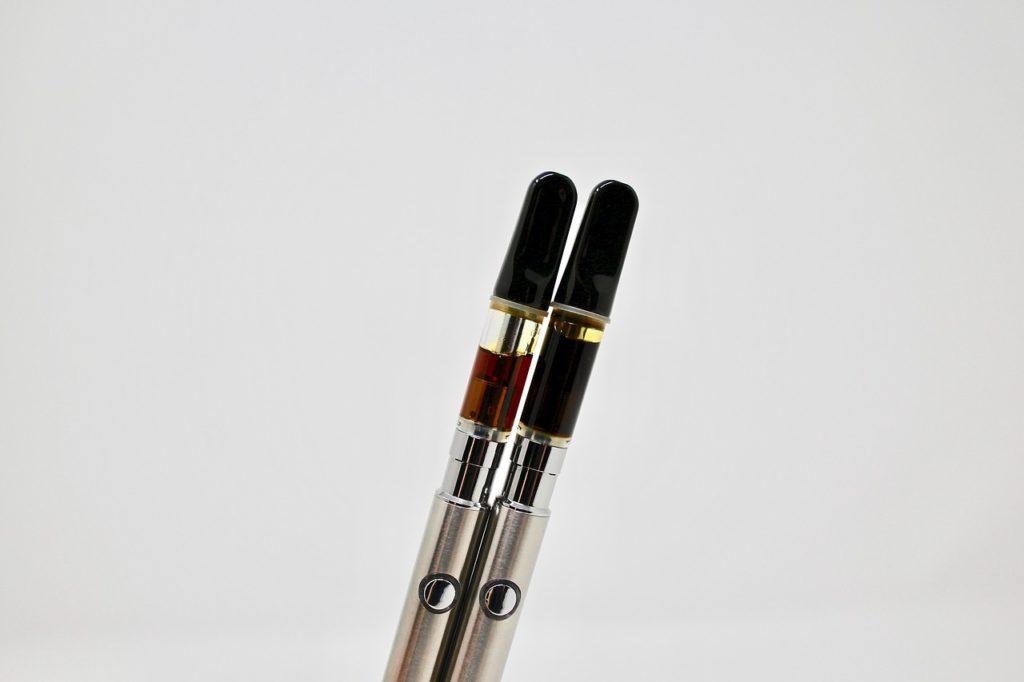
THC vs. CBD
Despite the fact that these two compounds have nearly exact chemical compositions and are part of those that make up cannabis, THC and CBD somewhat differently. THC is the psychoactive ingredient in marijuana that gives you the feeling of an altered state of consciousness – but CBD counterbalances the effects of THC. CBD can actually boost your energy. CBD can often help to mitigate the effects of THC by reducing anxiety or stress.
Side effects of THC
Although many scientists and doctors praise THC, it can have some negative side effects that need to be taken into account;
In 2017, the National Academies of Sciences, Engineering, and Medicine released a study on the health effects of cannabis and cannabinoids . Among the experts who contributed to the study was Dr. William Checkley, M.D., Ph.D. of Johns Hopkins University. Dr. Checkley argues that THC may have more negative effects than many experts believe.
“One of the biggest problems with cannabis is when you smoke it. It’s not just the drug, there are also all sorts of ingredients that come with burning any substance. There is evidence to support a link between smoking cannabis and respiratory symptoms. And people who smokers of cannabis are more likely to have respiratory episodes, especially chronic bronchitis, which is a combination of coughing and phlegm.”
Still, the doctor said the study was somewhat inconclusive about the extent of these effects;
“One aspect of the report showed that there is a strong link between cannabis use and the development of schizophrenia,” Dr Checkley continued. “And also that cannabis use was also associated with mania or hypermania in people who had a diagnosis of bipolar disorder. And there was also a small increased risk of depression and an increased number of suicide attempts.”
Other studies have shown similar conclusions, although all remain somewhat sceptical. The results, published in the journal Human Molecular Genetics from Tel Aviv University (TAU) in Israel, may shed further light on the relationship between THC use and psychiatric problems;
“Our research shows that cannabis has different risks in susceptible and non-susceptible individuals,” Dr. Ran Barzilay, a psychiatrist at TAU’s Sackler School of Medicine, told Medical News in 2017. “In other words, young people with a genetic susceptibility to schizophrenia – those with a family history of psychiatric disorders – should be mindful that they are playing with fire when they smoke marijuana smoke during adolescence.”
In addition to psychiatric problems and doubts about its benefits in treating symptoms, THC use has also been linked to reduced motor skills, Dr. Checkley says. The study used 21 studies from different countries with a sample size of nearly 240,000 participants, Dr. Checkley says.
“One of the things we found was that some reported that cannabis use with traces of THC in their blood or saliva was associated with about a 20% to 30% higher likelihood of a vehicle crash,” Dr. Checkley explained. “And that was pretty consistent, so it didn’t matter how you looked at the data. And so I think the information there was pretty robust, given the number of studies and given the number of countries and the number of participants supporting the relationship between cannabis use and increased odds of a motor vehicle crash. “
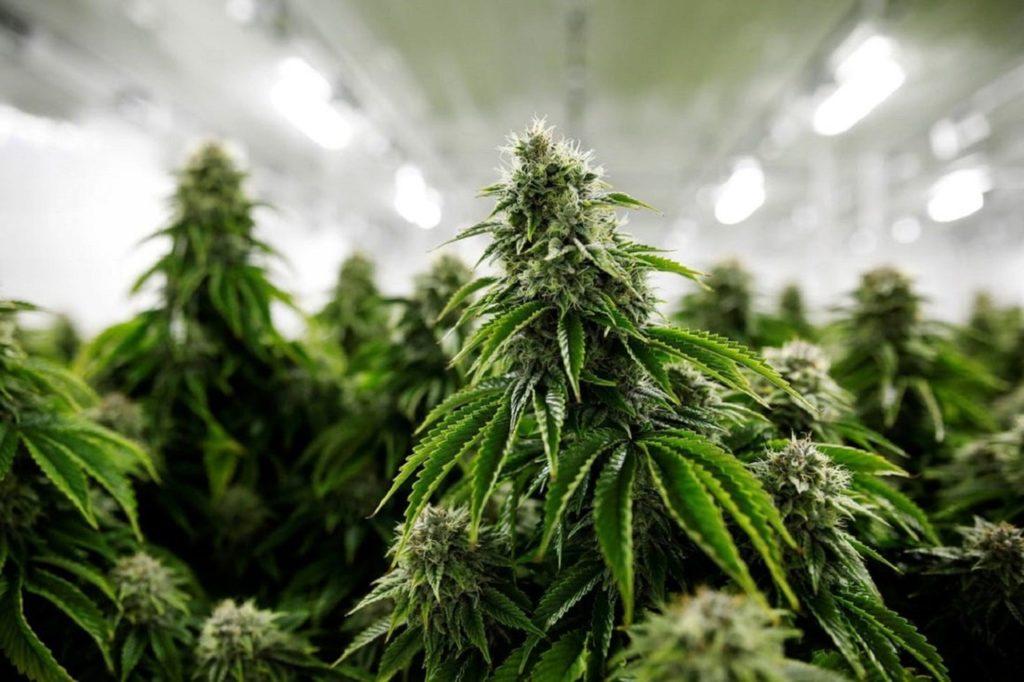
Health benefits of THC
THC provides pain relief
Pain relief is one of the main medical benefits of THC. More than 1.5 billion people worldwide live with chronic pain. Many of these individuals suffer from neuropathic or nerve-related pain. Studies show that compounds in cannabis activate pathways in the central nervous system that block pain signals from being sent to the brain. Even an FDA-approved study in 2013 confirmed the effectiveness of THC in relieving pain. Individuals with neuropathic pain were given low doses of THC (1.29%) in the form of vaporized cannabis. Results?
“Low-dose delta-9-tetrahydrocannabinol provided a statistically significant 30% reduction in pain intensity compared with placebo.” Thus, it is clear that there is a positive correlation between THC and pain relief;
Relieves nausea and vomiting
Marinol (an FDA-approved THC pill) for treating nausea and vomiting in cancer patients has been around since the 1980s. In fact, Marinol was marketed as a pharmaceutical alternative to cannabis. However, while Marinol contains delta-9-tetrahydrocannabinol (THC), the compound is both synthetic and isolated.
Thus, Marinol does not include useful components such as other cannabinoids, terpenes and flavonoids, all of which work better together than alone.
Interestingly, a 1995 study revealed that oral doses of THC-8, a cannabinoid similar to regular THC but with lower psychotropic effects, was an effective treatment for children suffering from chemotherapy-induced nausea. The only side effect observed was mild irritability.
However, other emetic drugs such as Zofran can lead to side effects such as: diarrhea, headache, drowsiness, blurred vision, muscle cramps, rash, fever and constipation;
Protects brain cells
The madness of the madmen has led many people to believe that cannabis consumption kills brain cells. The reality, however, is that this couldn’t be further from the truth. While most drugs are neurotoxic, THC is considered a neuroprotectant, meaning it actually protects brain cells from damage.

Helps heal PTSD
PTSD can include symptoms such as restlessness, severe anxiety, depression, insomnia, nightmares and social isolation – it can be a crippling condition. Nevertheless, THC has proven to be a highly effective treatment option for PTSD. Some psychiatrists claim that THC-rich cannabis is the only treatment for PTSD;
Studies have confirmed that THC alleviates many of the symptoms associated with PTSD, including agitation, depression, insomnia, flashbacks and nightmares. This means that for those suffering from PTSD, they can finally experience the restful sleep they need to heal and restore balance to their lives;
All they need is safe access to cannabis and guidance on how best to implement it into their lives.
Promotes brain growth
Believe it or not, the medical benefits of THC for the brain may be even greater than we thought. The psychoactive substance not only protects brain cells, but also stimulates brain growth. THC activates the “CB1 receptor” in our brains. This stimulation promotes a process known as long-term potentiation, which improves the brain’s ability to learn;
Scientists have also found that, like CBD, THC causes brain cells in the hippocampus to grow. Therefore, small doses of cannabis can treat or even slow down diseases such as Alzheimer’s;
THC increases appetite
Conditions such as HIV, eating disorders , hepatitis and dementia can lead to loss of appetite. Over time, this can result in severe malnutrition or even death. THC is known to increase appetite. Scientists have found that THC interacts with the same type of receptors in the hypothalamus that release the hormone ghrelin, which stimulates hunger. In fact, THC may even improve appetite. With the right approach, the hunger-inducing effects of THC can dramatically improve quality of life. And in some cases, even save lives. Interestingly, some cannabis cultivars can also suppress appetite, which can be an added benefit for many people.

Antioxidant
There is a reason why cannabis has been touted as an anti-aging and anti-stress tool. THC and other cannabinoids are powerful antioxidants. This is not surprising, given that in addition to protecting cannabis plants from pathogens, the herb increases its production of THC in response to UVB light;
UVB light is a type of light that causes oxidative stress in humans and contributes to visible aging and other skin diseases. Oxidative stress can cause damage at the cellular and DNA level;
Anti-inflammatory effects
Inflammation is a hot topic in the world of healthcare today. Why? Chronic inflammation is considered a major risk factor for all kinds of diseases. Depression? There’s an inflammatory component. Arthritis? Inflammation contributes to pain, stiffness and poor health over time.
Many curious individuals are opting for CBD for the sake of relieving inflammation. However, THC also has a role to play.
Research suggests that in some cases, this cannabis compound may reduce the production of cytokine and chemokine compounds in the body. Cytokines and chemokines are immune compounds that trigger inflammation;
Further preclinical research suggests that THC may be able to reduce inflammation by suppressing genes related to the inflammatory response. These findings may explain why so many consumers find relief from the many health benefits of THC;
Potential anticancer agent
Cannabis is also attracting interest in cancer research. Research in the laboratory and in animal models has found that the herb kills cancer cells in several different ways. While multiple cannabinoids show anti-cancer potential, THC is one of the main contenders.
Dr. Gregory Smith, a Harvard-trained physician, touched on emerging evidence that suggests psychoactive and other cannabis compounds have potent anti-cancer potential;
Specifically, Dr. Smith mentioned that there are three distinct ways that cannabis affects cancer;
Products that may be of interest to you
The first is through a process called apoptosis, an immune function that triggers cells to self-destruct when they are damaged or diseased. “Cannabis does that apoptosis, that horrible word that tells a cancer cell to kill itself.”
In laboratory models, cannabinoid can block tumour formation in blood vessels. This essentially starves cancer cells by cutting off their food and oxygen supply. In addition, cannabis compounds appear to prevent cancer cells from metastasizing;
“All three of these things are well known,” Smith continued, “and the anti-cancer effects are mostly THC.”
Muscle relaxant
Have you ever tried cannabis that made you feel sleepy or heavy? The culprit may be THC and some of the additional terpenes in certain cannabis strains. It is well known that this cannabinoid can have muscle relaxing properties.
This quality is perhaps part of the reason why the compound is so beneficial for patients with conditions such as multiple sclerosis, who often experience muscle spasticity, pain and cramping. In fact, cannabis-based medicine for these exact symptoms is already on the market in more than 30 countries. The drug, called Sativex, contains both THC and CBD.
Although THC itself is thought to have muscle relaxant properties, the molecule’s ability to relieve spasms and tension may be enhanced by certain aromatic compounds in the plant;
Some experts suggest that myrcene, a terpene molecule with a musky scent, may also contribute to the heavy-body feeling that sometimes follows a night of cannabis consumption;
THC is an anticonvulsant;
In the world of epilepsy, CBD often gets all the credit. Cannabidiol (CBD) is non-oxidizing compared to THC, and the cannabinoid has successfully reduced seizure activity in clinical trials. However, many do not realize that THC also has anticonvulsant properties. Research on the anticonvulsant properties of THC has been more or less halted due to all the interest in CBD. Early research on cannabinoids, however, tells a different story.
Studies conducted in the 1970s found that the psychoactive compound successfully reduced seizures in animal models, including baboons;
One small study conducted in the 1940s found that THC treatment successfully reduced seizures in two out of five epileptic children who did not respond to conventional treatment. Was THC effective 100% of the time in this early research? No. But this first research suggests that the cannabinoid is definitely worth learning more about.
This article is not encouraging the use of THC, but it is advisable to know all its potential advantages and disadvantages;



